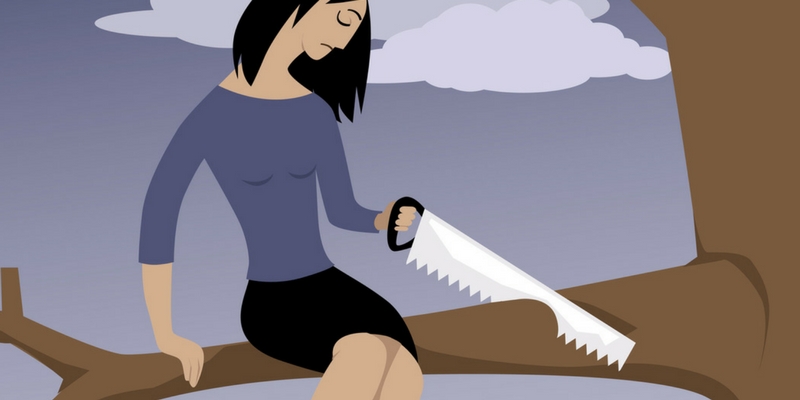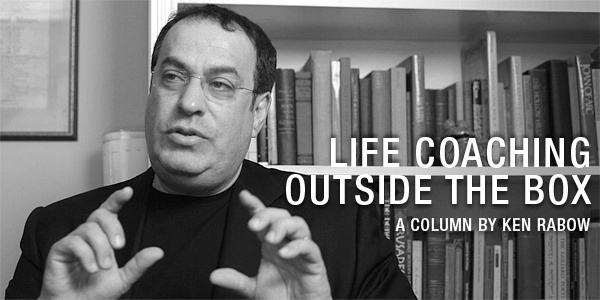One On One Mentoring:
Online Life Coach for Young Adults
A Life Coach for Young Adults must do the following:
Listen:
- A good listener. Free of judgment. We listen to the worries of the parents. At the same time, we hear the young adult’s challenges and we support them choosing better self-directed paths.
Organize:
- An organized, tried and true system to help life coach young adults past their blocks and help them find success in a way that helps the develop, grow and own their lives.
Have Vision:
- A great life coach for young adults can see the gold that is there, the challenges preventing the gold from shining and a slow and steady path to help the client reach their potential.
Encourage Truth:
- A great life coach for young adults creates a safe-space where the client will share the truth. The exact thing he has been avoiding with parents, teachers and others.
Foster Practice:
- A professional life coach for young adults dealing with low self-esteem, failure to launch, school failures must “right the ship”. We start with goals and create a daily routine and then show our clients that to succeed in daily routines, we must find out where in the day they can begin to start the work required. Once they see that they can be in control, they start to believe in themselves for things they earn.
Personalize:
- A skilled life coach for young adults creates a personalize program. Based on what the parent has shared, the goals the client chooses and what they learn together working twice a week, week after week on daily routines to help life coach young adults to find their inner strength.
We Create a Personalized Program: This program is based on what the life coach has heard, what the young adult chooses as goals and the life-lessons that will let them grow towards those goals.
Read About Our Method for
Life Coaching Young Adults
Our method for Life Coaching Young Adults focuses on motivation and inspiration.
The client needs to want to grow. That is the essence of what a life coach for young adults does.
- Sessions are held twice a week for one full hour each on Skype.
- The client chooses three things they wish to work on, the challenges to those being successful and the first sign-posts of success.
- We create together a daily schedule of tasks to work on and learn what works, what doesn’t work and how to be successful .
- Clients learn how to take charge of their lives in positive ways eliminating many self-limiting mindsets such as depression in teens / depression in young adults, anxiety in teens / anxiety in young adults and addiction in teenagers / addiction in young adults (such as pot addiction and video game addiction).
- This is a system that is designed as a free of judgment, self-discovery system where the client chooses their remedies (with guidance), learn from their mistakes and grow.
If you would like to know more or see if this system would work for your teen or young adult, please contact us for a free 15 minute consultation.
One On One Parent Support
Due to the challenges most parents have been dealing with for many years, we have created support for the parents as well as the client. There are four ways we can offer support for each parent who is interested in trying to help their child rise above the challenges in their lives.
-
Consider the idea of a life coach for young adults for your child.
This is the main reason people call us.
World Wide Youth Mentoring Inc works with a system for life coaching young adults developed by Ken Rabow. It is complete system of guidance and mentoring that approaches the young adult as a partner in their journey past their blocks towards new habits that lead to success.
Our focus is to use a client’s innate strengths to grow the parts that are challenges for them. Together, we set realistic short term goals, daily routines and use these tools to help them learn personal growth skills that work and are long lasting.
The goal of a professional life coach for young adults is to let them walk their own path while avoiding the dead ends including teen depression and teen anxiety that will follow them later on in life and become depression in young adults and anxiety in young adults.
-
Let us help you get your child to consider Life Coaching Young Adults.com
Half of the parents who meet with us and believe that our system to life coach young adults will work, have no problem getting their children to meet with us. Offering their children the opportunity to decide for themselves if this system will be right for them.
But for the other half, it may seem like getting their children to even consider life coaching for young adults can be impossible. As a result of these challenges, we have experienced all sorts of resistance and found ways to get clients onboard. We can offer you many techniques to help your child consider life coaching. Once we meet with them, we can then see if this is the right system for them. Our success rate with this is about 95%.
-
Mentor and Parents working together to help you survive the day-to-day frustrations.
So many parents these days feel alone in dealing with a child who seems to blocked from success.
Challenges for young adults these days are most noteworthy. Issues like: school failures, low self-esteem, communication, anger, pot addiction, videogame addiction, anxiety, and more. When you work with a professional life coach for young adults, you become part of a team. Together, we rise above the day-to-day frustrations. Part of our long-term mentoring strategy for growth is helping parents and their children learn to communicate and co-operate.
Our success rate is high for parents willing to work together with us and create a new, positive family dynamic.
-
Learning to be a Mentor through Mentors Professional Workshop.
For those who wish to become mentors for young adults, we recommend taking our course at Mentors Professional Workshop. We have a program where you can mentor another mentor’s child and they can mentor yours’.
This is a wonderful way to give back to the community with your own skills. We then find another Mentor to do the same for you. It really does take a village. This one is just virtual.
If you would like to know more or see if this system would work for your teen or young adult, please contact us for a free 15 minute consultation.
How Training to Become a Professional Life Coach for Young Adults Works
Through World Wide Youth Mentoring Inc. we offer a one year course through our online live courses at Mentors Professional Workshop.
These courses cover all levels of support for young adults in need and their families. Their are three degrees due to the fact that not all clients need the same level of mentoring.
1st degree for issues of low self-esteem, school failures, communication issues, mild pot addiction and video-game addiction.
2nd Degree adds mental health issues; young adult anxiety, bi-polar issues, schizophrenia in youth, oppositional defiant disorder and more pernicious addictions. Aspergers Syndrome in Teens
Master Level Mentors are trained for everything. From themes complex to the most baffling. Almost every challenge young adults face these days can be transformed with the guidance of a Master Level Mentor.
PLAN OF ACTION
- Share this with someone who would be a perfect candidate to become a Professional Life Coach Mentor for Young Adults
- Book a Free 15 Minute Interview to learn how we can train you to become a Professional Life Coach / Mentor for Young Adults
- Go to our sister website, Mentors Professional Workshop, to learn all about Becoming a Professional Life Coach / Mentor for Young Adults





